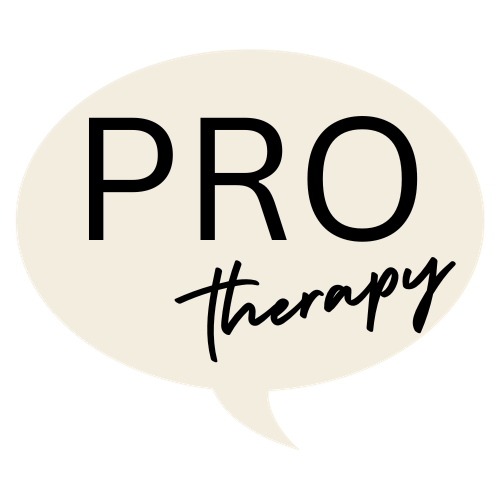Therapy for Social Anxiety
TELE-HEALTH SESSIONS AVAILABLE AS WELL AS IN-PERSON SESSIONS IN FARMINGTON HILLS, MICHIGAN.
Social Anxiety
Living with social anxiety can be an overwhelming and isolating experience. It's like being trapped in a room with invisible walls, constantly aware of the judgment and scrutiny of others, even when it might not be real. It feels like a weight pressing down on your chest, making every interaction an uphill battle.
The anticipation of conversation or interaction can be paralyzing, making the idea of small talk or meeting new people seem like a massive task. It's as if the mind is flooded with an unrelenting storm of negative thoughts, doubting one's abilities and fearing rejection, which further feeds into the anxiety.
The fear of embarrassment, stuttering, or being the center of attention looms large, causing you to avoid gatherings or situations where these fears might be realized.
Ultimately, social anxiety can be a vicious cycle. The avoidance of social situations, while providing momentary relief, reinforces the anxiety, making it even more challenging to confront and overcome.
CONTACT US TODAY
It doesn’t have to be this way.
Effective therapy for social anxiety can be transformative, offering individuals a path to overcome their fears and regain control over their lives.
With proper support, therapy, and self-compassion, it is possible to break free from the confines of social anxiety and gradually regain the confidence and freedom to engage with the world more openly.
More about social anxiety
-
There are common signs and symptoms that may indicate the presence of social anxiety:
Excessive Fear of Judgment: People with social anxiety tend to fear negative judgment and evaluation by others. They often worry about embarrassing themselves or being criticized in social situations.
Avoidance Behavior: Individuals with social anxiety may go to great lengths to avoid social situations or endure them with significant discomfort. This avoidance can impact their personal and professional life.
Physical Symptoms: Social anxiety can trigger physical symptoms such as a rapid heart rate, sweating, trembling, blushing, nausea, or feeling lightheaded in social situations.
Self-Consciousness: Constant self-monitoring and self-criticism are common in those with social anxiety. They are preoccupied with their own thoughts and behaviors during social interactions.
Difficulty Initiating or Maintaining Conversations: People with social anxiety may find it hard to start or maintain conversations, fearing they will say something wrong or be judged negatively.
Fear of Public Speaking: Social anxiety often intensifies when speaking in public or in front of a group. This is a particularly common trigger for social anxiety.
Isolation: Social anxiety can lead to social isolation or a limited social life, as individuals may avoid gatherings or events to prevent anxious feelings.
Performance Anxiety: Individuals with social anxiety may experience anxiety specifically related to performance situations, such as giving presentations, performing on stage, or taking tests in public.
Overthinking: Ruminating over past social interactions, worrying about future ones, and excessively analyzing conversations are common among those with social anxiety.
Physical Discomfort: Muscle tension, stomach discomfort, headaches, and other physical symptoms may accompany social anxiety.
It's important to note that social anxiety is a diagnosable mental health condition and the information above is intended as general information. Our therapists can provide a formal diagnosis and help develop a treatment plan. If you believe you may have social anxiety, allow us to provide guidance and support for managing and overcoming this condition. You don't have to face social anxiety alone.
-
Several therapeutic approaches have shown promise in treating social anxiety. We use a blend of these approaches and tailor the therapy to the individual's specific needs and preferences.
Cognitive-Behavioral Therapy (CBT) is often considered the gold standard for treating social anxiety. CBT helps individuals identify and challenge the negative thought patterns and beliefs that underlie their anxiety. Through structured exercises and exposure therapy, individuals gradually confront their fears in a controlled environment, learning to manage and eventually reduce their anxiety responses. Over time, this process builds confidence and fosters new, more adaptive behaviors.
Exposure therapy is particularly effective in helping individuals face their social fears. It involves gradually exposing them to anxiety-provoking situations, allowing them to develop coping strategies and desensitize themselves to their triggers.
Mindfulness-based approaches, such as Mindfulness-Based Cognitive Therapy (MBCT), can complement CBT. These therapies teach individuals to be present in the moment, observing their thoughts and emotions without judgment. Practicing mindfulness can help reduce the automatic, anxious responses to social situations, promoting a sense of calm and emotional regulation.
Supportive and client-centered therapy provides a safe and empathetic space for individuals to express their feelings and concerns. Together, the therapist and client explore the root causes of their social anxiety, often stemming from past experiences or early conditioning.
Ultimately, effective individual therapy for social anxiety is a journey of self-discovery, challenging ingrained thought patterns, and gradually building the skills and confidence needed to face social situations with greater ease.
Why Choose Pro Therapy?
We have expertise in anxiety disorders, including social anxiety.
We are well-versed in evidence-based treatments for social anxiety, such as Cognitive-Behavioral Therapy (CBT), Exposure Therapy, and Mindfulness-Based Cognitive Therapy (MBCT).
We develop personalized treatment plans tailored to the specific needs and goals of each client.
We regularly assess progress and adjust the plan as necessary.
We assign relevant homework or exercises to practice between sessions, reinforcing the skills learned during therapy.
We engage in ongoing professional development and stay updated on the latest research and techniques for social anxiety.



